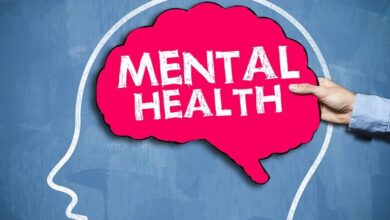OCD Meds: A Comprehensive Look at Treatment Options

Obsessive-compulsive disorder, or OCD, can significantly affect a person’s capability to perform routine activities. Unceasing worries can make even the most straightforward daily activities feel daunting. On a positive note, one of the most effective methods for controlling symptoms of OCD is medication.
Understanding ocd meds is the first step towards reclaiming your precious mental wellness. This guide will cover the key features of these medications and their different varieties and recommend best-case recovery strategies involving therapy.
What Is OCD and Why Medication Helps
OCD neurotransmitter imbalance is defined as a chronic mental illness, as it deals with recurrent intrusive thoughts and repetitive behaviors that may interfere with any person’s work-life balance. Left unattended, these pattern manifestations can become overwhelming leading to negative outcomes in personal as well as social domains.
Talking about therapy, especially cognitive behavioral therapy (CBT), along with exposure and response prevention (ERP), is essential. However, medication has a substantial role in augmenting symptoms in conjunction with these therapies.
Types of OCD Medications
Like most other conditions, there are several approved drugs aimed at managing this condition. Most belong to antidepressants. Here are the most common categories.
Selective Serotonin Reuptake Inhibitors (SSRIs)
Obsessive-compulsive disorder (OCD) is treated first with SSRIs. SSRIs alleviate compulsive and obsessive symptoms by enhancing serotonin levels in the brain.
Some examples are:
- Prozac or Fluoxetine
- Zoloft or Sertraline
- Luvox or Fluvoxamine
- Paxil or Paroxetine
- Lexapro or Escitalopram
Although SSRIs are well tolerated and effective, patients may not feel the effect for several weeks.
Tricyclic Antidepressants (TCAs)
It can be quite effective. However, TCAs tend to cause more side effects than SSRIs, like dry mouth, dizziness, and blurred vision, making them take longer to work. TCAs are helpful when SSRIs fail.
Augmentation Medications
When SSRIs or TCAs are not effective enough, doctors may suggest using both together.
Other common strategies include
- Prescribing a low-dose antipsychotic like Risperidone or Aripiprazole
- Prescribing a mood stabilizer
- Prescribing short-term anti-anxiety medication
How Long Does It Take for OCD Medications to Work
Unlike instantaneous pain relief, OCD medications can take a long time. Most individuals start noticing incremental changes to their symptoms after 6-12 weeks. During this time, your doctor may alter the dose.
Even after improvements in symptoms, it is customary to stay on medication for at least 1-2 years, which helps prevent a relapse and helps in symptom management.
What Happens When You Start Taking Medications for OCD
Starting medication can be a life-changing step. Knowing what to expect will lower anxiety levels. Some early symptoms most patients report include
- Nausea or light headache
- Mild insomnia
- Increased anxiety
Such side effects will resolve with time, but constant follow-ups are required to track progress, and treatment adjustments can be made if necessary.
Advantages of OCD Medications
The correct medication can significantly alter how an individual with OCD functions. Benefits include:
- Reduction or elimination of obsessive thinking
- Decreased compulsive actions
- Improved focus or attention
- Better outcomes when using therapeutic techniques
For some individuals, medication offers a much-needed baseline, enabling them to shift their focus toward other areas of healing.
Expected Risks and Side Effects
While OCD medications are regarded as safe for most people, side effects may occur. Some include:
- Changes in body weight
- Difficulty sleeping or excessive sleeping (insomnia)
- Stomach-related issues
Potentially severe but uncommon side effects include:
- Increased risk of self-harm in younger adults
- Serotonin syndrome, which is a dangerous syndrome
- Symptoms of withdrawal if the medication is stopped suddenly
Always speak to your provider before discontinuing or altering any medication.
Should You Pair Therapy with Medication?
Studies continually support the integration of therapy and medication for effective symptom reduction in OCD. Medications alleviate the symptoms, while therapy tackles the underlying issues and provides recovery strategies.
The duo serves as a complete treatment plan and aids in achieving everlasting recovery.
Holistic Tools to Support OCD Treatment
Societal norms expect that as long as you follow through on prescribed OCD meds and therapy sessions, your life should run smoothly. However, many “other” things can improve one’s situation, such as:
- Daily physical activity
- Mindfulness and meditation
- Healthy diet
- Reduced caffeine and alcohol consumption
- Support groups
Such practices may improve one’s mental health and work great in conjunction with medication (both prescribed and self-imposed).
When to Talk to a Doctor
If you or someone you love suffers from:
- Obsessive thought patterns that do not seem to go away
- Time-consuming rituals that get repeated
- Severe emotional distress and panic
- Impaired day-to-day functioning at work/home
If and when these concerns arise, it is advisable to seek consultation from a mental health care specialist. Early treatment can increase recovery outcomes significantly.## Misconceptions of OCD Medication Medications
Let’s explore the myths that surround OCD medications
Myth: You will have to take meds forever
Fact: Many people take medication for a brief period with the intention to step down gradually while being supported by a physician.
Myth Meds Change Your Personality
Fact: The adequate medication reduces your symptoms, not who you are.
Myth: Needing meds is a sign of weakness.
Fact: Using treatment tools is self-care, and being proactive about one’s health is a sign of strength.
Strategies for Managing OCD Medications
To optimize your OCD medication treatment, follow these suggestions:
- Take medications at set times every day.
- Set a reminder on your phone so you never miss a dose.
- Notify your prescriber of any changes in how you feel.
- Be patient, as meaningful change takes time.
- Stop taking medication without medical advice.
Conclusion
Obsessive-Compulsive Disorder (OCD) can feel like an endless fight, but there is effective help available. If you are starting your treatment plan or looking at medication alternatives, learning more about OCD meds is a proactive step towards better health.
Medication might not fix everything, but it sure helps with the symptoms while allowing for other therapy and lifestyle adjustments to help in healing. Do remember that progress takes time, and not all attempts will be positive, but that does not mean they have failed.
For specific details on the different types of medications, their dosages, and expectations, in our full Comprehensive Guide to OCD Medication.
Frequently Asked Questions
What is the best medication for OCD?
SSRIs like fluoxetine and sertraline are commonly used and effective.
Can OCD meds cure OCD?
They do not cure the disorder but can greatly reduce symptoms and improve quality of life.
Are there natural alternatives to OCD medication?
Some people use mindfulness or supplements. It is crucial to remember that these are meant to complement, not substitute, medical treatments.
How long should I stay on OCD medication?
Most people use meds for at least a year. Patients usually discuss with their doctor the timeline and method for gradually reducing medication.
What if the first medication does not work?
Trying out different medication combinations or adding therapy is sometimes necessary to find the right fit.




